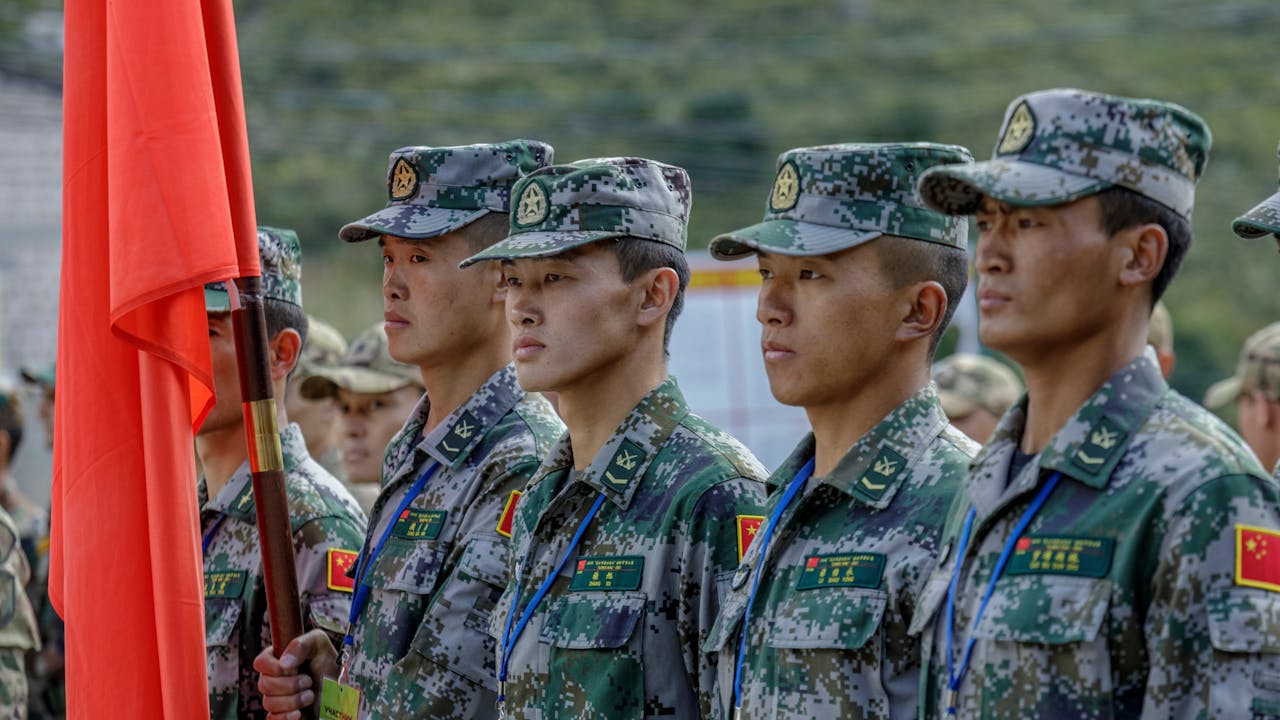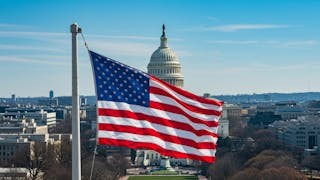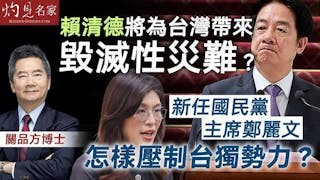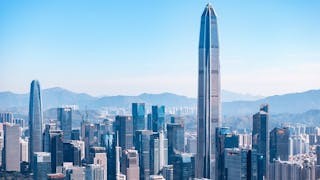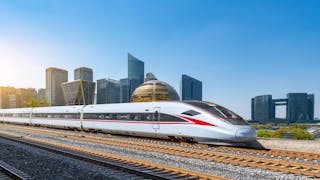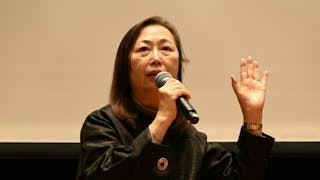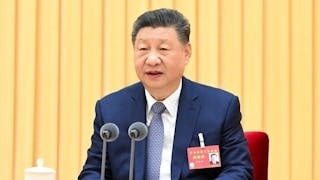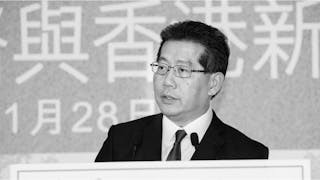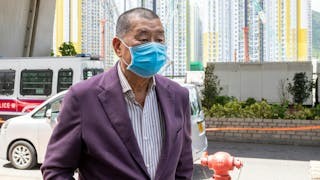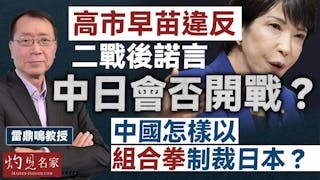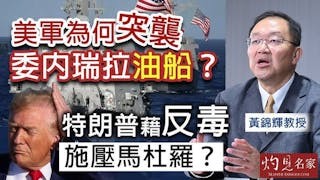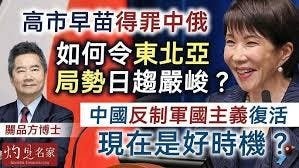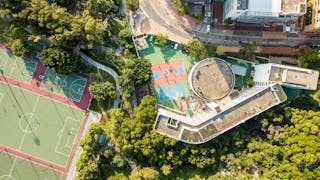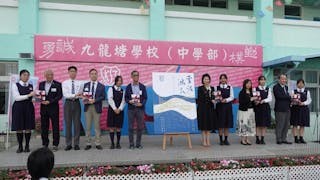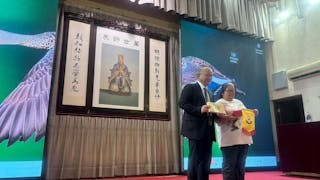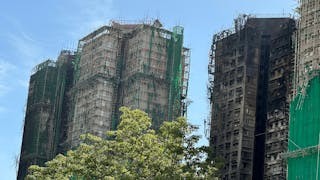中國人民解放軍最近一次的領導層改組,對其短期發展──包括改革和重新定位有重要影響。
2023年12月29日,十四屆全國人大常委會第七次會議決定任命62歲的董軍為國防部長,兩個月前,他的前任李尚福突然被解職。董軍是中國人民解放軍海軍前司令員,不在美國制裁名單上,這意味着在中美兩軍通過熱線聯絡機制加強溝通之際,他可以直接與美方進行交流。
儘管內地傳媒沒有解釋李尚福被解職的原因,但他可能捲入腐敗醜聞,特別是2013年至2017年李尚福負責戰略支援及裝備供應和軍事武器採購。
李尚福被免職,適值中央強調要貫徹新時代黨的強軍思想、牢固樹立戰鬥力、加快國防和軍隊現代化建設──中央軍委主席、中共總書記習近平的講話也強調了這一主題。
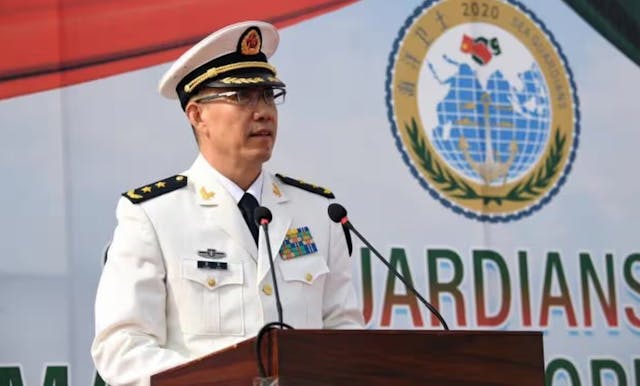
免職軍官 或涉及採購腐敗
全國人大常委會12月29日也宣布,9名解放軍全國人大代表被免去職務。他們是呂宏、李玉超、李傳廣、周亞寧、張振中、張育林、饒文敏、鞠新春和丁來杭。
呂宏是火箭軍裝備部部長;李玉超曾任火箭軍司令員;李傳廣曾任火箭軍副司令員;周亞寧曾任火箭軍司令員;張振中曾任火箭軍副司令員、中央軍委聯合參謀部副參謀長;張育林曾任中央軍委裝備發展部副部長;饒文敏曾任中央軍委裝備發展部副部長;鞠新春曾任南部戰區副司令員;丁來杭是空軍前司令員。
從這些被免職的軍官的隸屬範圍來看,從火箭軍到空軍,從解放軍總裝備部(已撤銷)到中央軍委裝備發展部,他們很可能涉及火箭軍採購、裝備、軍備方面的腐敗行為。
被免職的9名軍官中,有兩名是高級將領:周亞寧,中國人民解放軍上將,2017年至2022年任火箭軍司令員,自2017年10月起任中共中央委員。2015年12月,周亞寧進入新成立的火箭軍第一批領導班子,出任副司令員;2017年8月出任火箭軍司令員。
另一名高級將領是火箭軍前司令員李玉超。1962年出生,2008年任第二炮兵副參謀長;2012年任第二炮兵工程大學副校長。4年後,他升任火箭軍第55基地司令員;2022年1月,李玉超升任火箭軍司令員。
據報道,周亞寧、李玉超和火箭軍副司令員劉光斌於2023年7月接受中央軍委紀律檢查委員會及解放軍審計部官員調查。
一批解放軍將領被免職之際,2023年12月27日有報道指,全國政協主席會議決定免去3名航天軍工企業高層全國政協委員的資格。3人是中國兵器工業集團董事長劉石泉、中國航天科技集團公司董事長吳燕生、中國航天科技集團副總經理王長青。由於這些公司在李尚福領導解放軍採購部門時從事武器生產,因此有理由相信這3名航天軍工高層涉嫌貪腐活動。
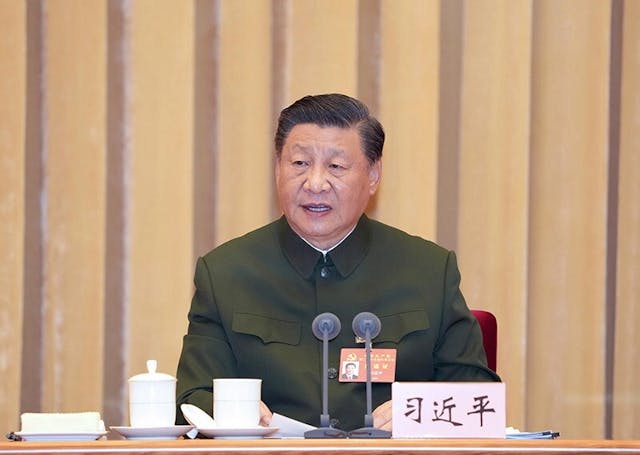
加強內部反貪 免職不足為奇
據報道,2023年12月19日,相關中國航天軍工企業的黨組織被要求召開會議,學習中共總書記習近平的重要指示精神。習近平早在2018年8月就提到,解放軍必須服從黨的領導,軍隊必須堅持黨風廉政建設,必須強軍和現代化,堅持貫徹軍隊好幹部標準,正風肅紀、反腐懲惡。2018年8月,習近平在中央軍委黨的建設會議上提出,軍隊要堅持黨的絕對領導,必須服從黨的指揮,必須建成世界一流軍隊,必須維護黨中央權威和集中統一領導。習近平指出,軍隊必須對黨絕對忠誠,必須落實黨委統一的集體領導下的首長分工負責制,要健全黨領導軍隊的制度體系。
很明顯,自2018年8月習近平重要講話以來,反腐敗鬥爭不斷深入。2021年3月,中央軍委近印發了修訂後的《中國共產黨軍隊紀律檢查委員會工作規定》,並自2021年4月1日起施行。修訂後的《規定》指出,要加強軍隊黨風廉政建設,重視黨的政治建設工作,加強軍隊內部反貪腐鬥爭。
如果解放軍的反腐敗鬥爭堅持下去,那麼解放軍最近出現一批高級軍官被免職、航天軍工企業也遵循類似模式,也就不足為奇了。
2023年12月25日,中央軍委在北京舉行晉升軍銜儀式,7名高級軍官晉升為上將,這被認為是1988年以來中國範圍最廣的一次晉升。在晉升的人員中,有兩人晉升為上將軍銜,值得我們關注。兩人是晉升為海軍司令員的潛艦專家胡忠明,以及晉升為海軍上將的南部戰區政治委員王文全。當日並無提及62歲的解放軍海軍司令員董軍,不過,5天後他被任命為國防部長。
這3位海軍高級指揮官同時晉升,對解放軍的改革和重新定位具有重要意義。
首先,隨着據報涉嫌貪腐活動的解放軍將領被清洗,中央軍委領導層似乎非常重視海軍將領擔任解放軍領導職務。
其次,在中菲在南海黃岩島領土爭端持續的情況下,上述3名海軍將領的晉升,意味着中國將優先處理南海範圍的領土爭端。
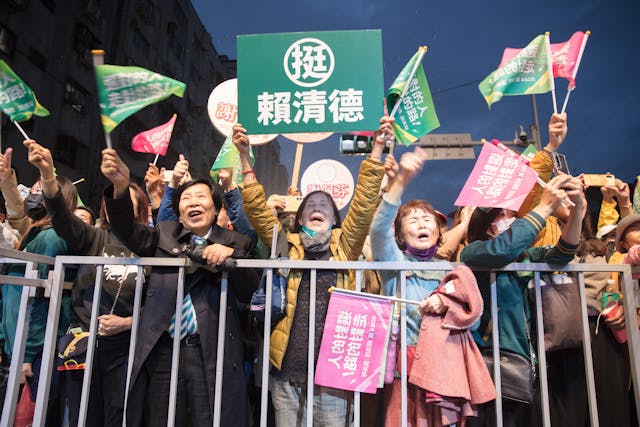
新防長無被制裁 有利中美對話
第三,如果新任國防部長董軍不在美國的制裁名單中,那麼他與美國防長的溝通將會更加便利──這與習近平主席與拜登總統於11月中旬在舊金山舉行會談後,近期強調的中美兩軍高層視像通話的情況不謀而合。
第四,台灣即將在本月13日舉行的總統選舉,民進黨的賴清德很可能獲勝,未來幾年大陸與台灣的關係將充滿挑戰,除非民進黨真正改變其反中立場。國民黨侯友宜方面公開呼籲賴清德放棄民進黨的台獨立場。除非民進黨像大陸方面所堅持的那樣,徹底改變並接受九二共識,否則大陸與台灣的關係很可能成為導火線,導致解放軍海軍需要對台灣內部政治形勢作出反應。
2022年8月,美國眾議院前議長佩洛西訪問台灣期間,解放軍在台灣周邊6個海域進行了海空實彈演習。如果說海軍在緊急應對台灣任何政局變化中,發揮了關鍵作用,那麼現在解放軍海軍司令員承擔起中國軍隊的關鍵領導作用也就不足為奇了。
2023年12月24日,台灣的國防部公布,解放軍戰機和軍艦在台海周邊海空域活動,包括探空氣球。解放海空軍在台灣附近海空域的活動已成為常態。大陸和台灣雙方面臨的挑戰,是避免「擦槍走火」,包括海軍和空軍。
總的來說,解放軍一些高級將領被免職並不令人意外,這與航天軍工企業持續進行反腐敗運動有關。解放軍的改革不僅包括鞏固黨的領導,也包括內部反腐敗,以實現軍隊現代化過程中的強軍建設。多名涉及腐敗的火箭軍指揮官被清洗,顯示火箭軍需要加強領導。值得注意的是,解放軍領導層正在指明一個新的方向:海軍指揮官在新的解放軍領導層中發揮至關重要的作用,特別是考慮到中國和菲律賓在南海的領土爭端,以及面臨台灣政局發展的敏感性。隨着解放軍領導層的年輕化,中國在共產黨領導下的強軍願景已經實現。如果是這樣,解放軍將如何繼續全力捍衛中華人民共和國主權、國家發展和安全利益,還有待觀察。
China’s Military Leadership: Reshuffle, Reform and Redirection
The most recent leadership reshuffle of the leadership of the People’s Liberation Army (PLA) of the People’s Republic of China (PRC) has important implications for its development in the short run, including its reform and redirection.
On December 29, 2023, the Standing Committee of the National People’s Congress (SCNPC) held its seventh meeting that approved the appointment of 62-year-old Dong Jun as the Defence Minister, two months after the sudden removal of his predecessor Li Shangfu. Dong was the former head of the PLA navy and is not on the list of US sanctions, implying that he would be able to interact with the US counterpart directly at a time when the Chinese and US militaries are enhancing their communication through the hotline liaison mechanism.
Although Li Shangfu’s removal was not explained by the mainland media, he might be involved in corruption scandal, especially as Li was dealing with the strategic and logistics supply and the procurement of military weapons from 2013 to 2017.
Li’s removal coincidentally came at a time when the mainland emphasized the need for a strong military with its improved capability amid modernization – a theme also stressed by the remarks of the chairperson of the Central Military Commission, the Communist Party of China (CPC) General Secretary Xi Jinping.
The SCNPC on December 29 also announced that nine PLA representatives were all removed from their representative positions in the national legislature. They were Lu Hong, Li Yuchao, Li Chuanguang, Zhou Yaning, Zhang Zhenzhong; Zhang Yulin, Rao Wenmin, Ju Xinchun, and Ding Laihang.
Lu Hong was a member of the Rocket Force; Li Yuchao was a commander of the Rocket Force; Li Chuanguang was a deputy commander of the Rocket Force; Zhou was a commander of the Rocket Force; Zhang Zhenzhong was a deputy commander of the Rocket Force and a chief of the joint staff department of the Central Military Commission; Zhang Yulin was a deputy director of the General Armament Department; Rao Wenmin was a member of the Equipment Development Department; Ju was a commander of the Southern Theatre navy command; and Ding Laihang was a commander of the Air Force.
Judging from the spread of these removed officers, which ranged from Rocket Force to Air Force, and from General Armament Department to Equipment Development Department, it was likely that they were involved in corruption concerning procurement, equipment, and armament of the Rocket Force.
Two of the nine removed officials were of high-ranking generals: they were Zhou Yaning, general of the PLA and commander of the Rocket Force from 2017 to 2022 and, since October 2017, a member of the Central Committee of the CPC. In December 2015, Zhou was appointed as the first batch of new leaders of the Rocket Force, In August 2017, he became the Force’s commander.
Another general was Li Yuchao, a commander of the Rocket Force. Born in 1962, Li was a deputy chief-of-staff of the Second Artillery Force in 2008. In 2012, he became a deputy principal of the Second Artillery Engineering University. Four years later, he was promoted as a commander of the Rocket Force’s 55th base. In January 2022, Li was promoted further to be the commander of the Rocket Force.
It was reported that Zhou Yaning, Li Yuchao and Rocket Force’s deputy commander Liu Guangbin in July 2023 were investigated by the officials of the Central Military Commission’s Discipline Inspection Committee and the Military Commission’s Audit Department.
The removal of the PLA officials coincided with a report on December 27, 2023, when the Chinese People’s Political Consultative Conference (CPPCC) decided to remove three high-ranking officials of the military-industrial complex. They were Liu Shiquan (the chair of the Board of China North Industries Group Corporation), Wu Yansheng (board member of the China Aerospace Science and Technology Corporation), and Wang Changqing (an executive member of the China Aerospace Science and Technology Corporation). Since the companies dealt with weapons production at a time when Li Shangfu led the PLA’s procurement department, there were grounds for believing that these top three executives of the military-industrial complex were enmeshed in corruption activities.
It was reported that on December 19, 2023, the party organizations affiliated with the related Chinese aerospace industrial complex were required to hold meetings to study the directive issued by CPC General Secretary Xi Jinping, who mentioned as early as August 2018 that the PLA had to obey the directives of the CPC, that the military must insist on the need to build up a clean party, that the military must be strong and modernized, and that military officers must uphold the principles of being good cadres in observing strict discipline and combatting corruption. During the party construction meeting of the Central Military Commission in August 2018, Xi Jinping said that the military must implement stricter party governance, must obey the party, must construct a first-class military force, and must insist on the centralized and unified leadership of the CPC. The military forces, according to Xi, must be loyal to the party, must implement the system of the division of labour and responsibilities under the unified leadership of the CPC, and must perfect the mechanism of the party-led military (see http://www.crntt.hk, August 20, 2018).
Obviously, the anti-corruption drive has been deepening since Xi’s important speech in August 2018. Furthermore, in March 2021, the Central Military Commission released its revised regulations on the work of the Central Discipline Inspection Commission in the armed forces, regulations that were implemented in April immediately. The revised regulations pointed to the need for improving the party conduct and discipline in the PLA, the emphasis on the party’s political building work, and the necessity of combatting corruption within the military force.
If anti-corruption has remained persistent in the PLA, it is not surprising that the PLA has recently witnessed a series of removal of high-ranking officers and that the military-industrial complex has also followed a similar pattern.
On December 25, 2023, the Central Military Commission held a promotion ceremony in Beijing where seven high-ranking officers were promoted as generals – a promotion that was regarded as the most extensive one in China since 1988. Of those who were promoted, two of them deserve our attention. They were Hu Zhongming, a submarine expert being promoted as the PLA navy commander, and Wang Wenquan, a political commissar of the Eastern Theatre Command being promoted as an admiral. The 62-year-old PLA navy commander Dong Jun was not mentioned on December 25, but he was later promoted five days later as the Defence Minister.
The fact that these three high-ranking commanders of the PLA navy were promoted simultaneously has important implications for the reform and redirection of the PLA.
First, with the purge of those PLA commanders who were reportedly involved in corruption activities, the Central Military Commission leadership appears to attach immense importance to the navy commanders to take on the PLA leadership positions.
Second, it implies that, with the ongoing territorial disputes between China and the Philippines over the Scarborough Shoal in the South China Sea, the promotion of three navy commanders as mentioned above point to China’s priority in dealing with territorial disputes in the South China Sea region.
Third, if the new Defence Minister Dong Jun is by no means on the US sanction list, then his communication with the counterpart in the US side would be facilitated – a situation coinciding with the emphasis on military-to-military commission during the recent meeting between President Xi Jinping and President Joe Biden in San Francisco in mid-November.
Fourth, as Taiwan’s presidential election appears to point to a victory of the Democratic Progressive Party (DPP) led by William Lai, the relations between the mainland and Taiwan will be quite challenging in the coming years, unless the DPP would really alter its anti-mainland stance. The Kuomintang side led by Hou You-yi has publicly appealed to William Lai to abandon the DPP’s pro-independence position. Unless the DPP, as the mainland side has maintained, changes drastically to accept the 1992 consensus, mainland-Taiwan relations would very likely be a flashpoint that would trigger the need for the mainland navy to respond to the domestic development of the island province.
During the Nancy Pelosi visit to Taiwan in August 2022, the PLA conducted air-naval live-fire drills in six areas surrounding the island. If the navy occupies a pivotal role in any emergency response to Taiwan’s development, it is not surprising that the PLA navy commanders are now taking on the key leadership role of the Chinese military.
On December 24, 2023, the Taiwan defence ministry announced that the PLA fighter airplanes and warships had movements in the peripheral aerial regions and waters, including an air balloon (Oriental Daily, December 24, 2023). The movement of the PLA air force and navy in Taiwan’s nearby airspace and waters has become a normal phenomenon. The challenge for the mainland and Taiwan sides is to prevent the occurrence of military accidents, including their air force and navies.
In conclusion, the removal of some high-level PLA commanders in the mainland is not a surprising phenomenon, which is attributable to the persistence of the anti-corruption campaign within the military and the military-industrial complex. The reforms of the PLA embrace not only the consolidation of the CPC leadership but also its internal anti-corruption drive for the sake of building up a strong military in the ongoing process of military modernization. The purge of several Rocket Force commanders who were involved in corruption points to the need for a stronger leadership in the Rocket Force. It is noteworthy that the PLA leadership is pointing to a new direction: the navy commanders are now playing a crucial role in the new PLA leadership, especially considering the territorial disputes between China and the Philippines in the South China Sea and in face of the sensitivities of Taiwan’s political development. With the rejuvenation of the PLA leadership, China’s vision of having a strong military under the party leadership has already been fulfilled. If so, it remains to be seen how the PLA will continue to fully protect the sovereignty, development, and national security interest of the PRC.
原刊於澳門新聞通訊社(MNA)網站,本社獲作者授權轉載。原文網址:http://tinyurl.com/bdnz7f9s



